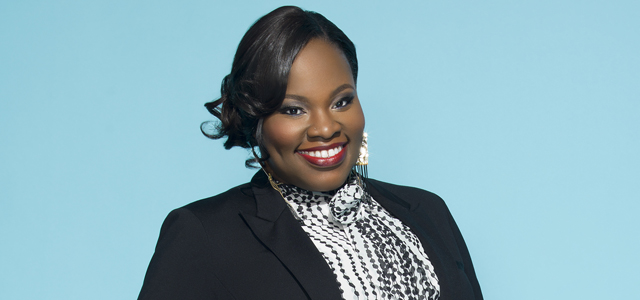 Before 2014, many haven't heard of the name of Tasha Cobbs outside of her hometown, but it all changed with one song.
Before 2014, many haven't heard of the name of Tasha Cobbs outside of her hometown, but it all changed with one song.
Cobbs released an EP late in 2014 and it reached No. 1 on the Top Gospel Albums chart. The singles "Break Every Chain" and "For Your Glory" also reached No. 1 on the Hot Gospel Songs charts. At the 56th Annual Grammy Awards in 2014, Tasha Cobbs took home Best Gospel/Contemporary Christian Music Performance, winning her first Grammy. Cobbs was awarded the Gospel Artist of the Year, at the 2015 GMA Dove Awards.
With all this success, you'd think she had it made. But it was there was a deep, dark depression behind that scenes that almost silenced Cobbs forever.
"Under the covers I would tell myself things like, ‘Nobody wants you, they only want you for your gifts; they only want you for your talents. People only want you for what you have to offer but nobody is giving back to you,’" confessed Cobbs. "Of course it was all untrue. I had so many people around me who loved me, but for some reason I was stuck in this place of rejection where no matter how good I am or how much I do, or how much I offer, it felt like it wasn’t enough. I would cry for hours. Sometimes I wouldn't even know why I was crying. It was just a heaviness that comes over you that you just cannot explain."
"During that time, something in my spirit said, ‘Tasha, you have to do something about this.’ It was just a moment where I felt like I couldn't move forward in my career and in my ministry if I kept allowing myself to be in this place. I thought, ‘At some point somebody is going to find out and it's going to get much bigger than what I'm able to handle.’ So I got up to do some research and I started studying depression. I called my cousin Shaniqua, and my pastor, to tell them I thought I knew what was wrong with me. I immediately found a therapist so that I could begin talking about what was happening with me.
My therapist diagnosed it as depression. I know what you’re thinking: Tasha Cobbs, Grammy-winning gospel singer, depression? Yes, depression."
"Going to therapy was new for me," admits Cobbs. "I didn’t know anyone who went to therapy – or so I thought. We don’t talk about mental health enough in our churches or our culture. I remember being weary of even doing it. When I started going to therapy I only told my closest friends and family. They were all very supportive. They would call and say, ‘Did you go to your appointment today? What happened? Did you have a breakthrough?’ But I know some people don’t have...
...that kind of support system— especially in our culture—and they suffer in silence. We need to fix this. Our culture and churches in general, should put more focus on depression and people who struggle with mental health. From what I've experienced in sharing my testimony with different people it's something way more prevalent than we acknowledge, and I am willing to stand on the frontline as a leader in our culture and address the mental health issues we have been ignoring.

"I still go to therapy. It's not as consistent as it was back then, but once a month or so, I'll meet with my therapist to make sure we're still on point. It's something I believe in and it's something I encourage. I believe that there are people in this earth that God has really graced to be able to help us through every situation in our lives, along with His strength, along with His power."
For more on depression and how to deal with it, click here.








